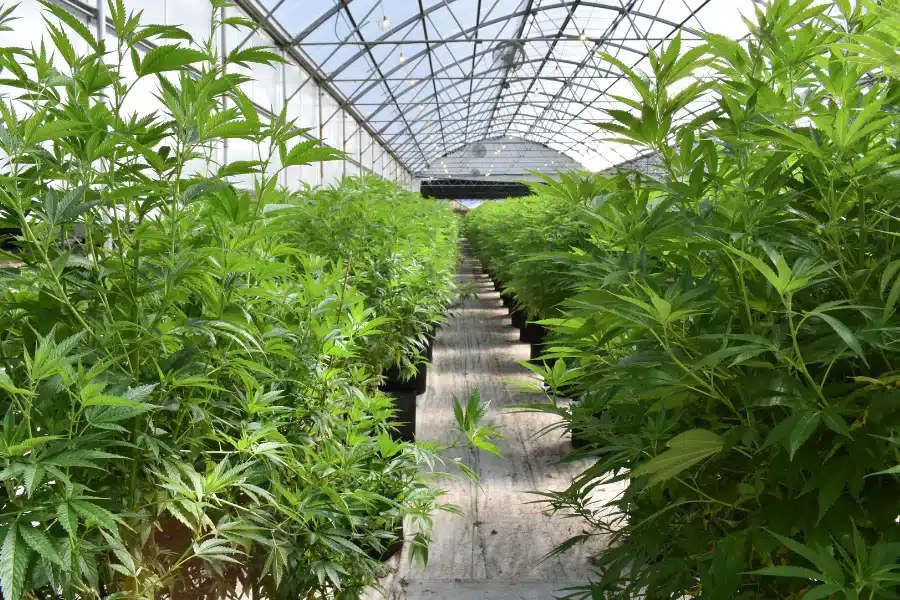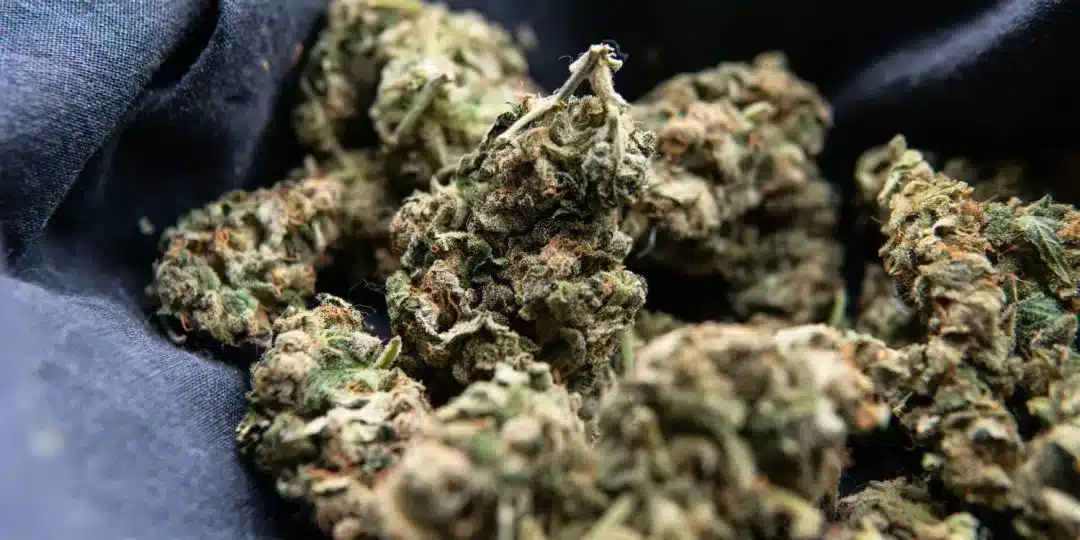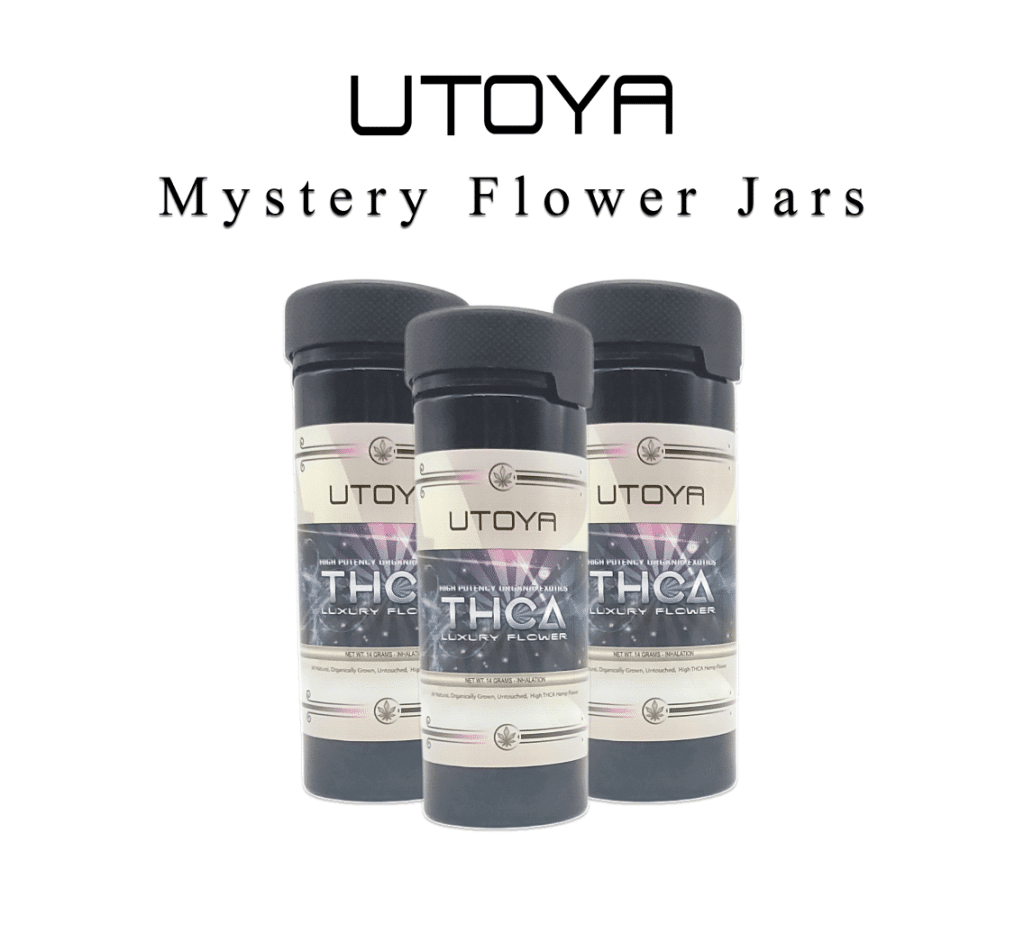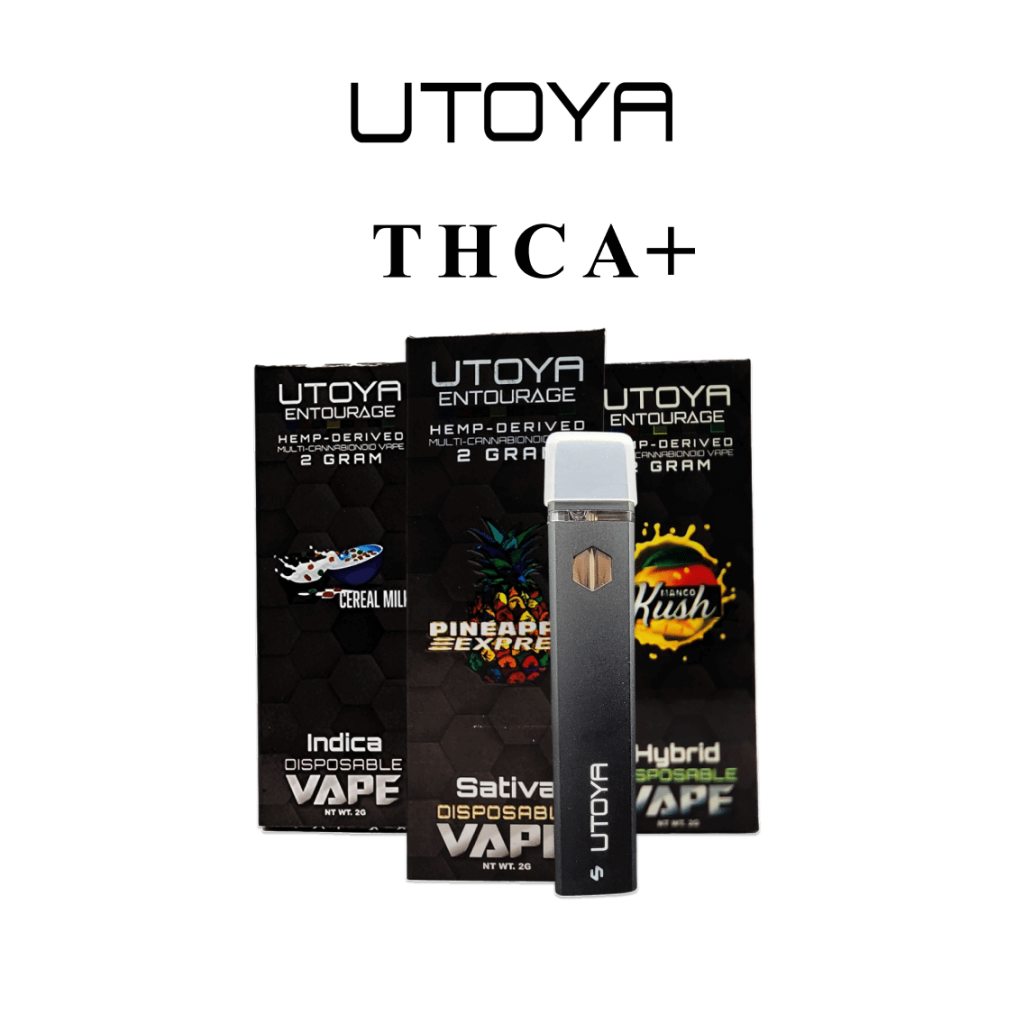Difference Between THCA and Delta 9
In the ever-evolving realm of botanical goods, understanding the disparity between THCA and Delta 9 is pivotal for producing informed alternatives. Whilst they might seem comparable initially, these chemical compounds interact with your form in unique ways, swaying their usage, legislation, and potential health benefits.
At Utoya Organics, we’re dedicated to crafting premier quality hemp and cannabis-derived artifacts. Just as important to us is teaching our patrons about the molecules of the plant. Let me break down how THCA is different from Delta 9, so you can take better control over your cannabis choices.

What Is THCA?
Tetrahydrocannabinolic acid is the non-psychoactive precursor to THC; it exists naturally in raw cannabis and is found particularly in fresh bud. Unsweetened, THCA doesn’t get one high (unlike delta-9).
When marijuana is not heated, whether in cooking, smoking, or vaporizing, THCA remains the same. This provides an option for those pursuing potential medical benefits without psychoactive effects. Emerging research is exploring THCA’s therapeutic properties in the absence of intoxication.
What Is Delta 9 THC?
Delta-9 tetrahydrocannabinol is the primary psychoactive compound in cannabis that readily triggers CB1 receptors in the brain and nervous system, greatly elevating mood, distorting perception, and increasing appetite.
Delta-9 THC is created through THCA losing a carbon atom in a process triggered by heat. Consequently, smoking, vaporization, or cooking marijuana transforms innocuous THCA into the intoxicating delta-9, allowing it to profoundly interact with the body.

Key Chemical Differences
The molecular dissimilarity between THCA and Delta 9 THC stems from a lone carbonyl group. Equipped with a carboxyl tail, THCA is denied entry into CB1 receptors and its remedial properties emerge without psychoactivity.
In its native state, THCA delivers therapeutic aid absent altered consciousness. Yet a basic change in structure activates Delta 9 THC’s reality-warping effects. The drug’s impact on recollection, decision-making, and coordination must be balanced against relief from agony, queasiness, and other maladies.
Psychoactive vs. Non-Psychoactive
The psychoactivity variance between THCA and Delta 9 THC is only the most visible difference. THCA isn’t intoxicating, so eating fresh cannabis leaves high in this cannabinoid won’t get you high. This quality enables individuals seeking health aid to be devoid of side effects caused by inebriation.
Alternatively, heating and ingesting Delta 9 THC activates its mind-altering properties. It can impact short-term recollection, prudence, and coordination in bothersome ways for some or in advantageous ways for others. Recognizing these divergences permits customers to customize their experiences according to personal limitations and proclivities.
Potential Health Benefits
Though emerging studies have revealed unique healing properties of THCA and Delta 9 THC, each cannabinoid shows promising potential. Amazingly, the anti-inflammatory power of THCA, in addition to acting as a neuroprotectant and antiemetic, could help manage conditions ranging from arthritis and epilepsy to neurodegenerative diseases.
At the same time, widespread investigation of Delta 9 THC’s influences on analgesia and appetitive motivation persists. Remarkably, it effectively eases nausea accompanying chemotherapy, augments glaucoma treatment, and mitigates chronic pain when prescribed judiciously.
If you’re seeking treatment for certain health issues without the high, THCA might be the compound you’re looking for. Nonetheless, in some cases, Delta 9’s deeper action on the centr
Legal Considerations and Compliance
A pivotal legal dissimilarity distinguishing THCA from Delta 9 lies in their varying permitted statuses, which can diverge extensively by location and nation. Delta 9-THC is outlawed under the U.S. Controlled Substances Act. While numerous states have sanctioned it for medical or entertainment applications, others retain uncompromising bans.
THCA commonly persists in a legal gray zone. Since it does not induce psychoactive effects alone, it can sometimes be sold legally, even in jurisdictions where Delta 9 is constrained. However, its potential to metabolize into Delta 9 when heated complicates its legitimate position. Consequently, certain jurisdictions treat high-THCA products as equivalent to Delta 9 due to this possibility.
At Utoya Organics, we strive to remain well within legal boundaries. Our products are extensively tested to comply with strict national standards, and we take additional steps to meet international regulations.
Methods of Consumption
Your method of consumption significantly influences whether you’re ingesting THCA or Delta 9 THC. Here’s how each is typically consumed:
THCA Consumption:
- Raw cannabis juices
- Cold-pressed tinctures
- Capsules or topicals formulated from raw plant extract
- Powdered THCA isolate added to smoothies or non-heated foods
Delta 9 THC Consumption:
- Smoking or vaping dried flower
- Baked edibles and infused foods
- Heat-activated tinctures or concentrates
- Dabbing of decarboxylated extracts
Understanding your preferred intake method helps you choose the right cannabinoid and product formulation.
Utoya Organics' Approach to Both Cannabinoids
At Utoya Organics, we believe education should accompany every sale. Understanding the nuanced differences between THCA and Delta 9-THC permits consumers to form informed judgments about what they choose to ingest. We provide options of both Delta 9-THC and THCA, following the strictest of standards, sourcing exclusively from organic hemp plants, and delivering certified laboratory test results.
Recognizing that everyone’s needs are different, we maintain a variety of cannabinoids in stock. Whether you’re drawn to THCA’s medicinal properties or Delta 9’s full effect profile, we aim to provide options that suit your body and lifestyle.
Conclusion
In summary, the differences between THCA and Delta 9 extend beyond scientific curiosity—they’re central to legal considerations, medical applications, and user experiences with cannabis.THCA is great medicinally without any high of Delta 9 THC, but when cell destruction becomes an issue, Delta 9 THC becomes a very straightforward medicinal option. While psychoactivity is produced by THC at higher doses, lower quantities provide relief from a variety of medical symptoms and conditions, making THC the most globally studied cannabinoid.
For consumers both new and experienced, discerning the distinctions between THCA and Delta 9 THC enables tailored choices that align treatment with wellness objectives. Utoya Organics is devoted to rendering the system, from shopping to obtaining your purchase, as straightforward, convenient, and successful as possible.
For more information, contact our group at (813) 697-4747 or browse our entire stock of lab-tested cannabinoids online. We’re always here to assist you in finding the appropriate answer for your needs.




